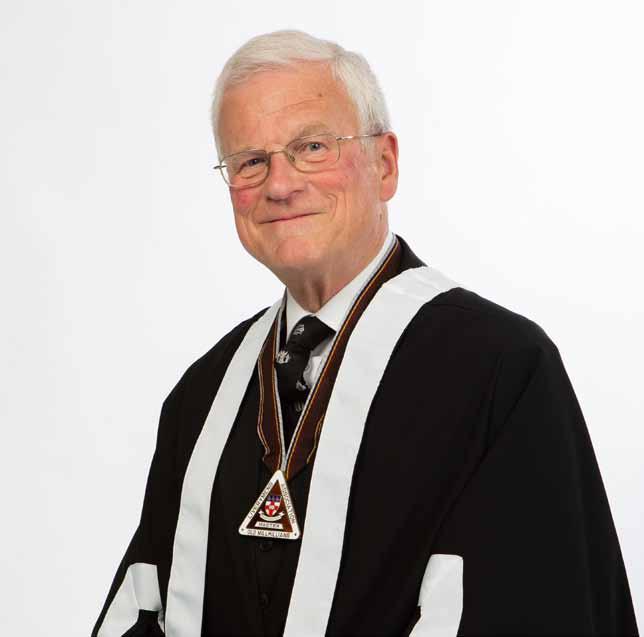
2 minute read
Careers Advice
CAreerinG AheAd Careers Advice Musings of the With Head, Roy Moore 1964. Careers Committee
Chairman and mind elsewhere on team tactics didn’t help. Lost game too; bad day. Graduation 1968: What next? Travel around Europe with girlfriend on £1 a day (only allowed to convert £50 a year then). Mill hill, Autumn 1964: Walking along ‘top Field’ Just miss the Soviet Occupation of Czechoslovakia, and return path bumped into Alec robertson. “you’re to no job. Autumn: girl-friend, now fiancée, sees an advert for leaving soon, have you thought about teaching”. a Youth Employment Officer in Norfolk. Sounds interesting; apply and get the job! The rest is history: A Careers Adviser’s role is endlessly interesting, especially given the major changes in the worlds of work and education we’ve seen during our life-times. We try to provide a bridge between education and employment; helping young people at all stages of their education, adults too, some teaching/lecturing, lots of research and writing, some administration, plus liaising with employers on selection systems and visiting their establishments. My list includes: hand-made candle makers, slaughter houses, car production lines, oil refineries, prisons, City solicitors and bankers, GCHQ and MI6, The European Commission, plus Police, Civil Service, Army and Naval selection boards. So my career evolved by chance. Happily now our students have the benefit of an embedded careers and life enrichment programme with a team of Head of Careers, University adviser, Sixth Form Head and support staff. The Club, with its rich source of Old Millhillians, is developing its contribution to this important area of our students’ life.
Advertisement
Wow, the first time my future career has been mentioned! “Well no sir, not really” said I. But studying the classics I had exhausted my curiosity for the languages, but not the culture. What to study at University? Parental connections made legal training a possibility, with an solicitor’s articled clerk opportunity available; so why not study Law? UCCA, the second year of the precursor to UCAS, application completed; place obtained. Warm glow at home, but no real thought as to what it would entail. At the end of term, was approached by C. Bowring who says; “Lidwell, need a job?”. “Yes sir; suppose so”, needing money to travel and explore Greece in gap year. Four months at Wiggins Teape, fine paper makers ensued: no interview needed! Worked alongside statisticians in the Organisation & Methods department: odd environment for a classicist, but really enjoyed the visits to their paper mills analysing working methods, despite the suspicious looks from the production line workers. Still think of ‘Dandy Rolls’.
Cambridge; Summer 1967: Law is not for me, probably too much rugby, but love college. Random thoughts, but no meaningful advice sought nor given. Becoming more aware of Society’s inequalities decide to study Sociology. “Not a proper academic discipline” says tutor, “but you could study Economics which has some new Sociology papers.” Sorted!
Autumn 1967: Mill Hill contemporary; “Have you been to the Appointments Board? Could be useful.”. Office way out of town, long cycle ride. Appointments Officer: “See you are JCR President and interested in sociology, apply for Hospital Administration.”. Remembering Robertson; I say “What about teaching?”. “Oh, you need to speak to my female colleague”. In those days there was a Women’s Appointments Board. In discussion, say “What about teaching in the state sector?”. “Don’t know about that” says she. Naturally I failed the interview board for Hospital Administration. Maybe having to change the interview time to take account of Cup rugby game Dick Lidwell (Murray 59-64) Chair of the Careers Committee










